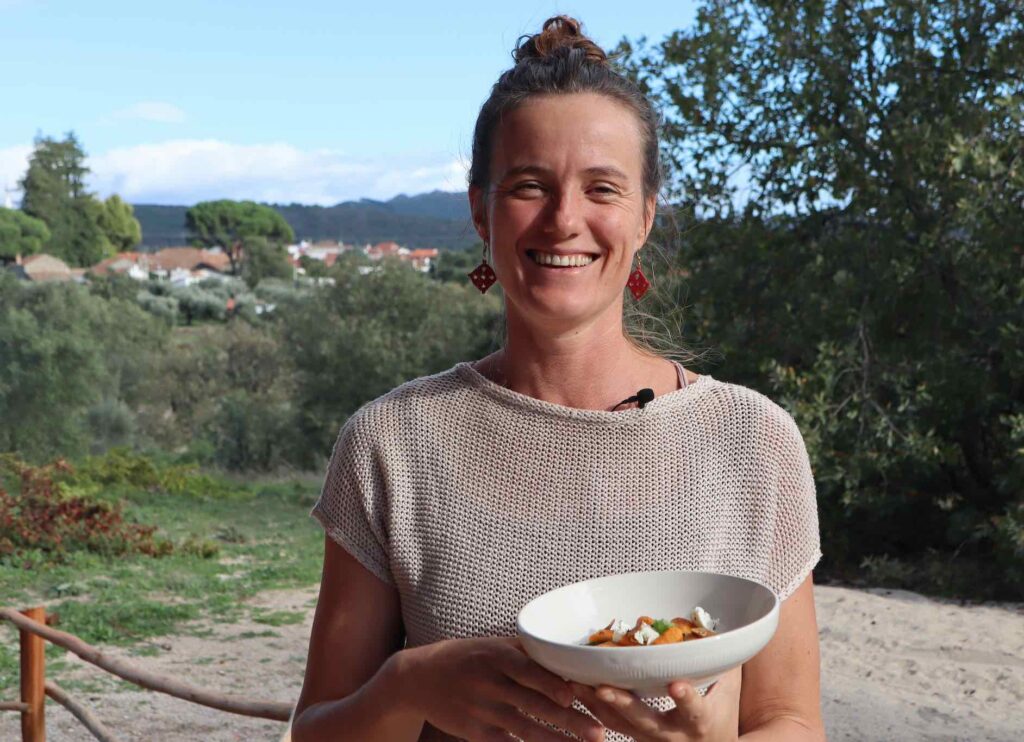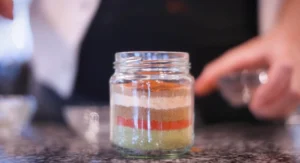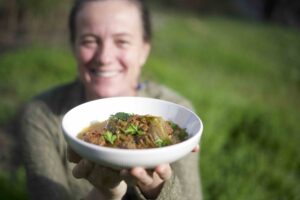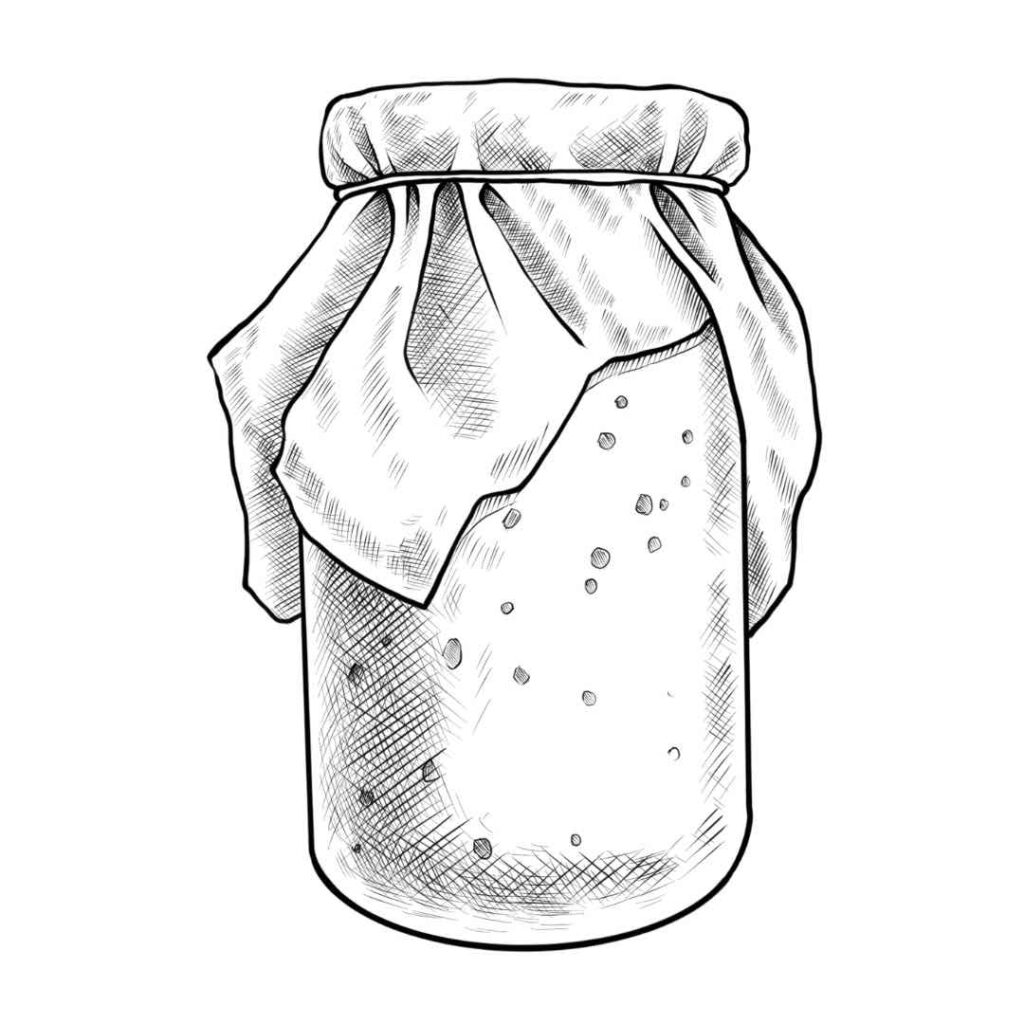It may sound a bit vague, but scientific research confirms it time and time again. Healthy soils lead to more nutritious food, with life in (and on) it, and that more nutritious food helps build a diverse and healthy gut microbiome. And your gut does much more than just help you digest your lunch. It plays a crucial role in your immune system, your energy level and even your mood! For that reason, your gut is sometimes called your ‘second brain’.
I have personally experienced the effect on your energy level and your mood. In the first years of building up the new farm and restaurant, I worked harder than ever before. As a Chef, running my own restaurant, I was already used to hellishly long days, hours on my feet and always performing under high pressure. But, since I went on a ‘farm diet’, I felt healthier than ever before. I ate a lot of fresh vegetables from the garden, seasonal, I used a lot of animal fat in the kitchen (both from pork, cow and chicken), we had our own olive oil, made sourdough bread and I sometimes ate six eggs a day. We ate less rice and pasta (because we don’t produce that) but we ate potatoes, corn, pumpkin, beans and sweet potato in abundance. I had better skin, better hair, more energy and could eat like a lumberjack without ever feeling lethargically ‘full’ or vaguely guilty/unhappy. Of course there was also the effect of more vitamin D, I don’t want to deny that. But it was especially during and after eating that I felt so much better than before.
“The magic of a good soil”
I still remember the first time that we – after two years of frantically learning to farm – harvested a large quantity of tomatoes. The very first year that the vegetables looked really healthy. They were bright red, smelled intense and tasted… different. Much more intense, fuller, more lively. The difference between those tomatoes and the average supermarket tomato is like comparing a symphony to a beep. Our soil, treated with care and love, was the key.
We had become accomplished farmers by then. We used no pesticides or fertilizers, but compost, cover crops, and minimal tillage. We grew about sixty different types of vegetables in our gardens. We had a huge number of herbs and flowers and did not plow. As a result, our soil was bursting with biodiversity. Every shovel of soil is full of tiny organisms that work together, and sometimes against each other. This interplay of harmony and struggle beneath the soil ensures that the nutrients that plants need are released. And when plants are well-fed, so are we.
‘You are what you eat—and what your food eats”
It goes without saying that the health of your gut depends heavily on what’s on your plate. But one of the most fascinating discoveries in this process is that not all crops are created equal. Not all tomatoes are the same. The most important thing is what that tomato was fed under the ground. In my opinion, this is the justified criticism on conventional farming. In today’s conventional agriculture, plants are confronted with poor soil and a fast-food diet of synthetic macro-nutrients. As a result, they are unable to connect to the complex soil food web that would normally provide a broader and more varied range of nutrients. This is because both the soil food web is disrupted and the growth of the plant’s root network is hampered. What ends up on your plate therefore depends on how healthy the soil is in which it was grown. It is all a beautiful chain of mutual dependency and interaction.
What started as a way to grow our own food for the restaurant became a deeper connection with nature and a lesson in how everything is connected. Something that we as humans intuitively sense, but from which we are usually distracted. due to the hustle and bustle of daily life and our urge for faster, cheaper and easier. With, as is increasingly apparent, disastrous consequences for our own health. We have more chronic diseases than ever, more food intolerances, food allergies and autoimmune disorders.
Fortunately, it is a lesson that science is increasingly embracing. Studies show that regenerative farming techniques, such as those we used on our first farm (and now use on our second farm), are not only better for the planet, but also for the nutritional value of crops. Think more antioxidants, more vitamins and even better flavors. And let’s face it, who wouldn’t want their food to taste better knowing it’s healthier too!
“From soil to plate, and beyond”
After our second restaurant on our first farm in Italy, we started ‘The Farming Chefs’. A regenerative farm in Portugal, specialized in fine vegetables with a culinary-didactic branch. We make weekly videos on Youtube where we tell people about regenerative practices, demonstrate how we farm and share our knowledge in the field of ‘farm to table’ cooking.
Our hope for the future is that everyone can enjoy nutritious and (h)onest food and that regenerative farming becomes the norm. That we start realizing that real health comes from connection. The connection between our soil and our intestines. The connection between our intestines and our physical and mental health. The connection between the consumer and the farmer. The connection between ourselves and the land we live on, eat from and enjoy, as long as we respect and nourish it!
The best food does not come from a dead field with poor soil, but from the living biodiverse garden of your local farmer. It’s not always easy, but the reward is in the small successes – that intensely flavored tomato, that perfectly crisp cabbage, and the knowledge that we are contributing not only to our own health, but also to the health of our children and the overall health of our planet.
So my advice is always this: a healthy and happy life starts with healthy soil. Eat well, eat lots of it, eat vegetables, meat, dairy, eggs and so much more. But eat it from a farmer who loves his land and who, by feeding the soil, feeds you too!
Sophie de Jong
The Farming Chefs








